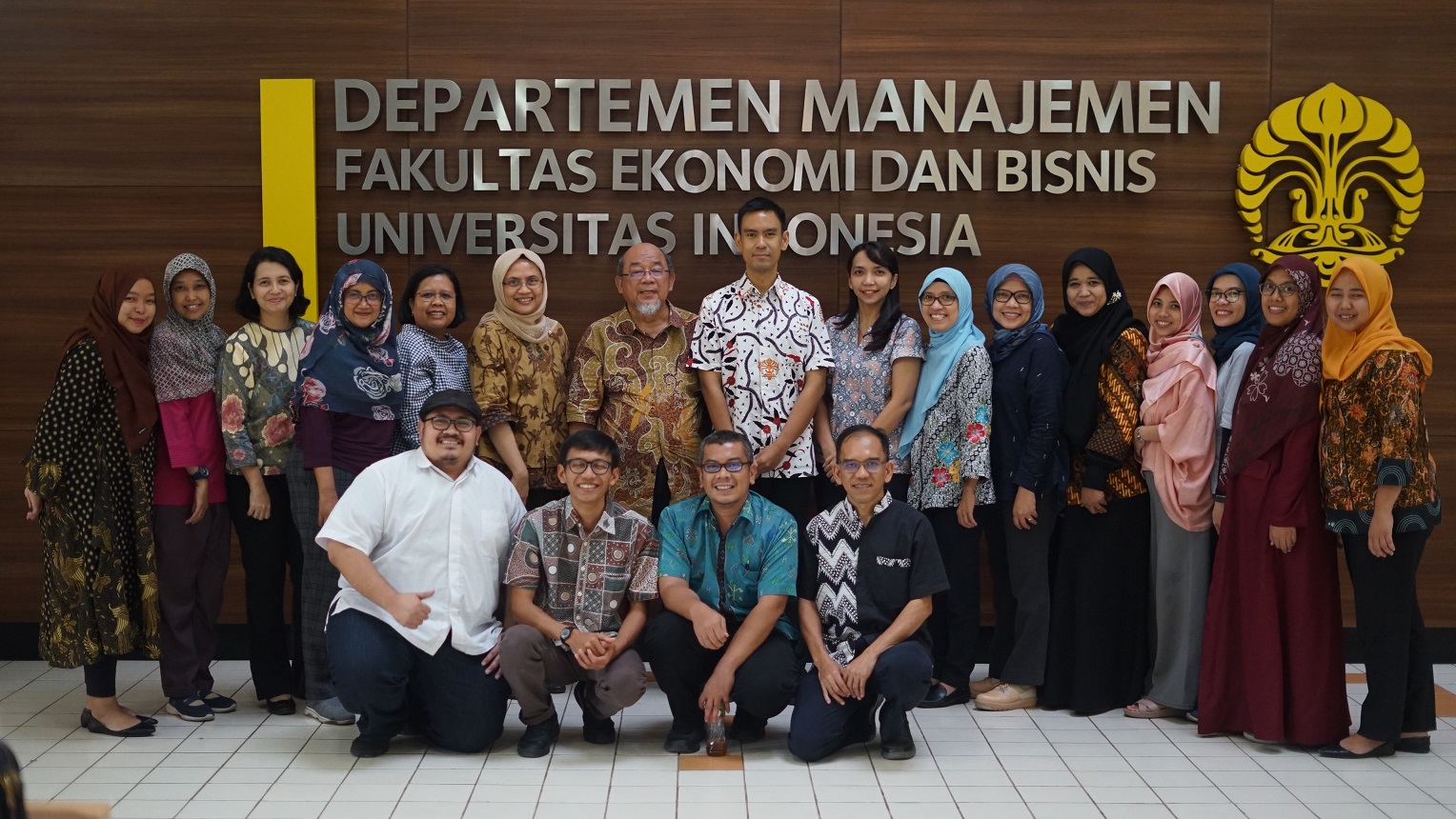Case Writing Workshop by MRC Department of Management with Prof. Zainal Abidin Mohamed from UPM Malaysia
Melva Costanty ~ Humas FEB
Nurlaily Setyasari ~ International Office FEB UI
DEPOK – On Monday (2/12/2019), the Department of Management of FEB UI held a Case Writing Workshop from Universiti Putra Malaysia, Malaysia. Dr. Zainal Abidin Mohammed was the speaker for this event. The seminar took place from 09.00 am until 4.45 pm in Laboratorium Komputasi (Labkom), 1st floor of Department Management Building, FEB UI. The workshop consisted of four sessions.

Before the workshop started, Dr. Ratih Dyah Kusumastuti as the Head of Management Research Center delivered welcoming remarks. After the welcoming remarks, Dr. Zainal explained several rules, such as the participant needs to be partnered with each other, and he was only passively active. This means that Dr Zainal expected active participation from and a two-way discussion with the participants.

The first session discussed on deciding the subject matter to write. Dr. Zainal explained about the Case Study Research Methodology, and how its function differs for every need, such as the needs for education or research. He then asked the audience about what makes researchers refrain from writing a case. After the participant reads their handout for 15 minutes, Dr. Zainal Abidin explained how to identify the real problems of the case. In addition, the problems should be defined with a clear “What, Why, Where, and When.” After the real problems were defined, the researcher can proceed to solve the problems.
The second session was about identifying the specific knowledge content to be taught and the detail components. Dr. Zainal advised that researchers writing a case in an area of their competencies and should be familiar with the subtopics. The subtopic should be handled with their respective components. The theories and models also should be adequate and inserted in the case appropriately.


The following session was about how to create the storyline to highlight the issues to be discussed. Dr. Zainal told that actually, the storyline depends on the preference of the writing. The common format is to present all the case facts first, and then in the second part, the writer gives the case solutions. He explained that the case fact should consist of opening, main body, and conclusion. The opening includes the urgency of the case, major personnel who involved in the case as well as the date of the incident. Then, on the main body, it should have several components, such as the background, history, and various relevant functional information. The information is provided explicitly under clear headings or interspersed. The closing paragraph, as Dr. Zainal argued, should not be a summary. It must be tied up with the first opening paragraph.


The last session was targeted especially for the case study used of teaching and how to develop teaching notes to accompany the case. The common components include case synopsis, learning objectives of the case, target group, suggested questions, how to lead the case, suggested analysis & solution, and the actual outcome. Dr. Zainal also taught how to write a case as a consulting report. He highlighted that the case written needs to meet the Terms of Reference as stated in the signed agreement. It is not necessary to use a storyline. However, the rationale for the analysis and the decision is the most important part.
The workshop ended with a token appreciation exchange with Dr. Arief Wibisono Lubis, the Acting Head of the Department of Management. We very much thank Dr. Zainal Abidin for teaching FEB UI academia on how to write better case studies. Hopefully, this will increase the quality of FEB UI research as well as the materials for students’ education. (IOFEB/NS)




